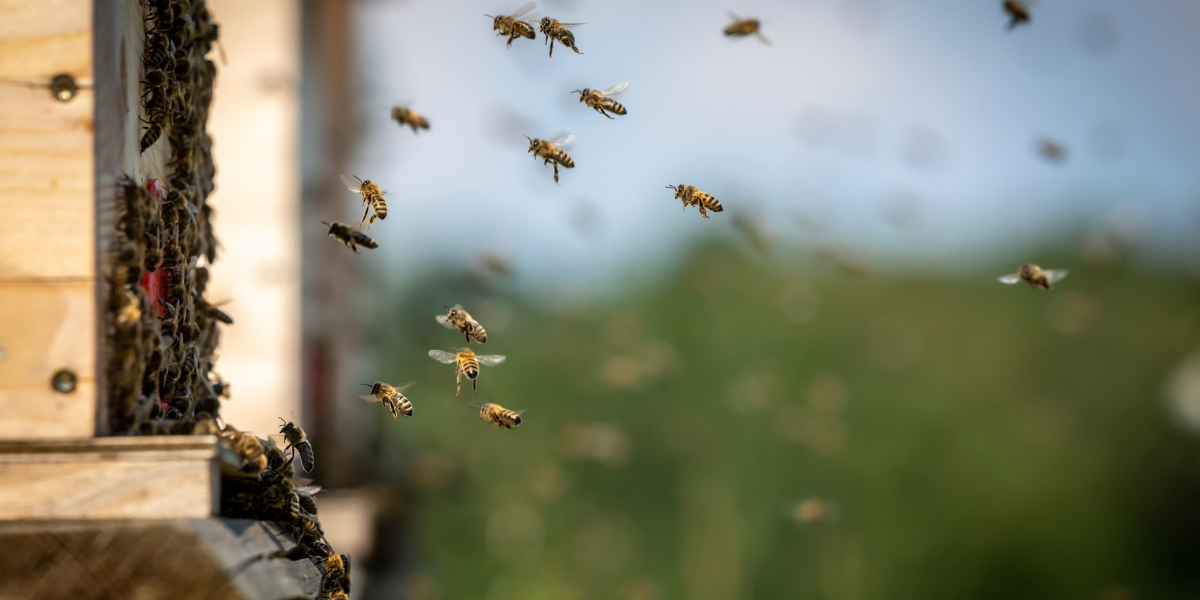The Role of Bees in Pollination
.png)
Bees are superstars when it comes to farming! Their pollination skills don't just give us a bounty of crops, they also help maintain the balance of nature. More than 75% of the crops we eat rely on bees and other pollinators to thrive. Without their hard work, many of our favourite fruits, veggies, and nuts would take a huge hit, leaving us with far less and quality decreased food (which is happening already). So, these busy bees aren't just a springtime icon – they're a big deal for global food production!
Examples of Crops That Depend on Bees
Some of the tastiest and most valuable crops need bees to grow well. Think of apples, almonds, blueberries, cherries, pumpkins, melons, zucchinis, strawberries, raspberries, avocados, pears, plums, broccoli, carrots (for seeds), and even mangoes. These plants produce more and tastier fruits when bees lend a helping hand. If bees were to disappear, these foods could become rare and pricey.
Threats to Bees and Pollinators
.png)
What's Causing Bee Populations to Decline?
Bee numbers have been dropping fast in recent decades, and that's alarming! The biggest culprits? Pesticides used in farming, which are super toxic to bees. Monoculture (growing only one crop on huge plots of land) also leaves bees with fewer food options. Add in habitat loss and climate change, and bees are struggling to survive.
Loss of Natural Habitats
As cities and farms expand, natural habitats like meadows and hedgerows are disappearing. These places are essential for bees to find food, shelter, and places to nest. Without them, bees have nowhere to go, which harms both them and our ecosystems.
Bee-Friendly Gardens: How You Can Help

Plant Bee-Friendly Flowers
Helping bees is as easy as planting some flowers! Lavender, sunflowers, crocuses, sage, thyme, marigolds, and borage are all great choices packed with nectar and pollen. By filling your garden with a variety of these, you're creating a beautiful space that also serves as a bee buffet.
Set Up an Insect Hotel
Insect hotels are like cozy little condos for wild bees and other pollinators. You can place one in your garden, balcony, or even a local park. These simple structures give bees a safe spot to nest and raise their young, helping boost their population.
Avoid Pesticides
To keep bees safe, ditch chemical pesticides. These not only harm pests but also the good guys like bees! Instead, try natural solutions like neem oil or protective netting for your plants. It’s a win-win for your garden and the bees.
Create Water Stations for Bees
Bees get thirsty too, especially in the heat! A shallow dish with water and some pebbles for them to land on is all they need. Just be sure to clean and refill it regularly. It’s an easy way to help keep them hydrated!
The Importance of Bees for Farming and the Environment
.png)
Economic Impact of Pollination
Bees aren't just great for the environment – they’re also a huge boost to the economy! Pollination from bees is worth billions of euros annually in the EU alone. Thanks to them, we get bigger harvests and higher-quality crops. If bee populations plummet, food production could drop, and prices would skyrocket.
Ecological Benefits of Pollinators
Beyond the economy, bees help keep our ecosystems in check. By pollinating plants, they ensure that many species continue to thrive, which in turn supports wildlife that depends on these plants for food and shelter. Without pollinators, entire ecosystems would be thrown off balance, affecting biodiversity and the planet.
In Conclusion: Everyone Can Make a Difference
Bees and other pollinators are vital for our food supply and the health of our planet. Given the threats they face, now’s the time to step up and help. Whether it’s by planting bee-friendly flowers, setting up an insect hotel, or avoiding pesticides, every small action counts. Together, we can support bee populations and ensure a brighter, more sustainable future for all of us. Let’s keep nature buzzing! 🐝🌸
- Cultivation Tips : Inspiration , Cultivation Tips
- Nature: Climate Stories
 Deutsch
Deutsch  Français
Français  Español
Español 
.png?ts=1725434685)